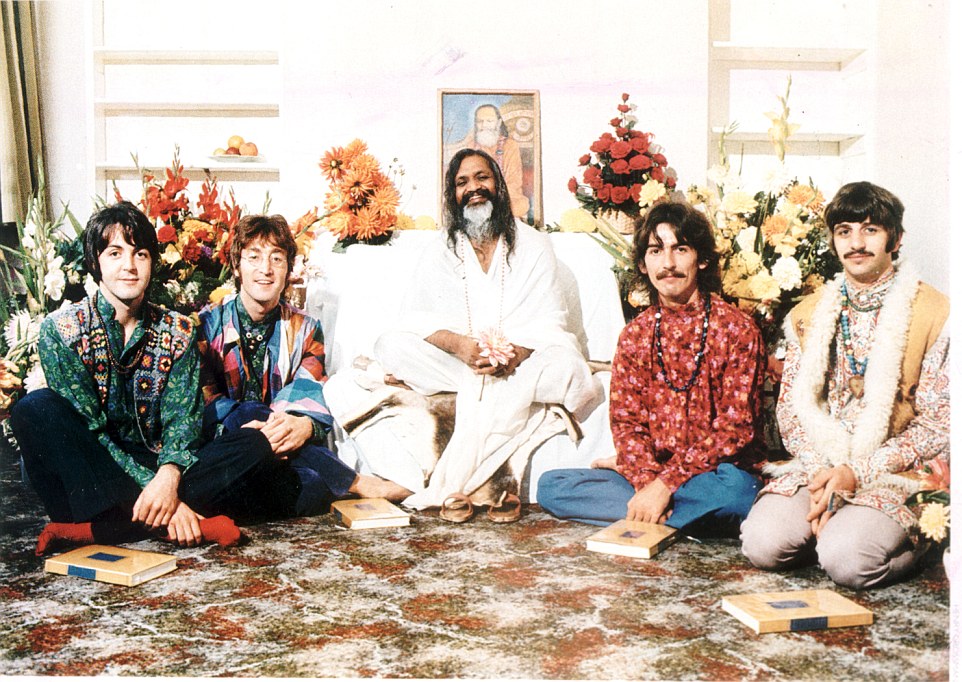Meditation Q&A Video 03: Why is Meditation so Popular These Days?
Meditation and mindfulness are very much in the news these days, and it seems like all sorts of people, including a long list of celebrities, are trying it And it’s not just eccentric Hollywood stars and top athletes. Now even corporate icons and politicians are advocating meditation.
Here’s a fairly random and very incomplete list of high profile meditators:
Dan Harris – ABC Newsreader author of ‘10% Happier’
Arianna Huffington – CEO, Huffington Post
Oprah Winfrey – Oprah Winfrey
Steve Jobs – retired after changing the world
Mark Bertolini – CEO, Aetna Insurance
Marc Benioff – CEO, Salesforce
Padma Shree Warrior – former CTO Cisco. Her name means ‘beautiful lotus warrior’ isn’t that cool?
William Ford – President Ford Motors (Grandson of Henry Ford)
Tim Ryan – US Congressman, Ohio
Russell Brand – crazy brilliant British former drug addict comedian
The entire Seattle Seahawks football team, on orders from their coach Peter Carroll
All Four Beatles
Hugh Jackman – Wolverine
Henry David Thoreau – pond sitting genius
Stevie Wonder – much loved musician
David Lynch – cult movie director
Jack Canfield – best selling author of recipe books for Chicken Soup
Aung San Suu Kyi – political leader finally allowed to be a political leader
Benjamin Franklin – $100 bill decoration
Orlando Bloom – professional elf
Tiger Woods – athlete specializing in bullying golf balls
Heather Graham – funny actress
Sting – musician and serious tree hugger
Ricky Martin – singer and hearthrob for millions of Latina women. Bad luck ladies, he’s gay
Meg Ryan – actress everyone loves
But of course meditation is not the exclusive preserve of famous people. These days meditation is being used in schools, veteran’s recovery programs, in prisons, on the menu of health insurance options, and even, briefly, in that bastion of conservatism, the British Parliament.
Meditation is not a new therapy invented in California. It’s been around for at least 7000 years, making it the most tested self awareness technique in the history of the world, with no harmful side-effects. And although meditation originated in India, it is now ubiquitous, popping up in spiritual traditions all over the world.
The question is, why is meditation suddenly popular now? What’s changed?
I can think of two relatively recent historical events that would seem account for the ‘rediscovery’ of this ancient practice by the public.
The Beatles Learned Meditation
The rise of the counterculture, peaking in the late 1960’s when The Beatles learned meditation, (surely the public relations coup of all time), introduced meditation to an entire generation. It has been popular in the musician and show-biz community ever since.  However, even after that generation of baby boomers and Beatles fans matured, meditation was still not main-stream. Although many prominent celebrities practiced meditation, it was still widely regarded with scepticism and distrust.
However, even after that generation of baby boomers and Beatles fans matured, meditation was still not main-stream. Although many prominent celebrities practiced meditation, it was still widely regarded with scepticism and distrust.
About seven years ago, something shifted and a completely different community, including scientists, academics and corporate managers began to pay attention to this phenomena. The reason for this sudden and rapid rise in interest was the work of one major culprit: Brain Research. Thanks to the development of more sophisticated brain monitoring technologies in the 1990’s, in particular the fMRI scanner, for the first time in history we were able to see what is going on within a living brain. Finally we had the tools to prove, even to a materialistic scientist, that meditation actually works.
Research
What began as a trickle of research into the effects of meditation and mindfulness on the human brain has become to a flood. More than 3000 peer reviewed studies support the long held claims of practitioners. Confirmed benefits now include lowering blood pressure, improved concentration, greater empathy and compassion, increased creativity, greater clarity, improved emotional intelligence and more.
The stage is now set for our modern culture to fully embrace meditation. I anticipate that within five or ten years meditation practice will be as readily accepted a part of a healthy daily routine as exercising and brushing your teeth. Watch this space.
In a remarkable instance of serendipity, six months after I made this prediction to conclude a keynote address at a CISCO conference, ABC newsreader, Dan Harris, released a meditation video saying exactly the same thing, virtually word for word.
